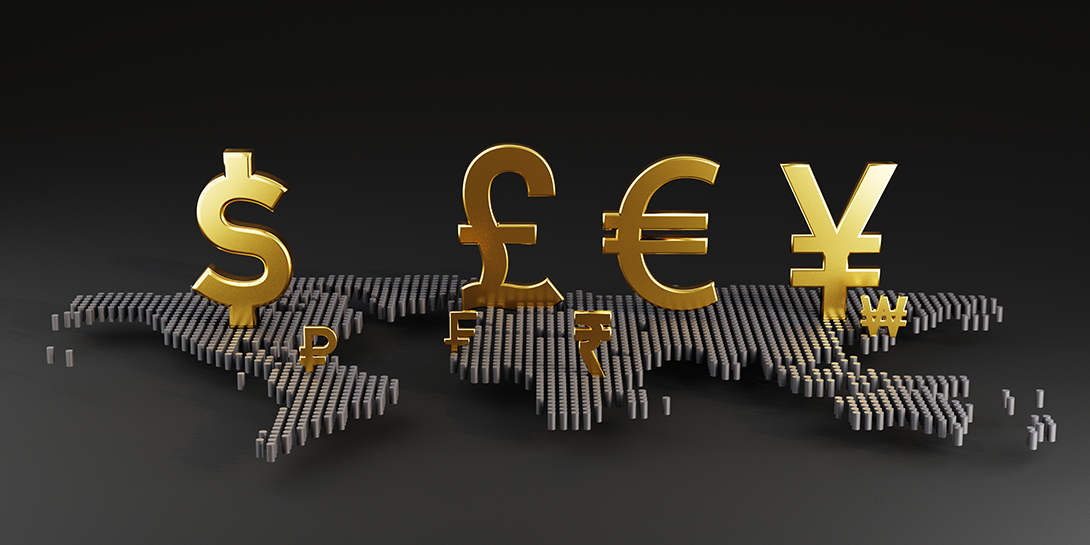What are Cross Currency Pairs?

Introduction
The US Dollar is the most owned currency in the world. So in a way, it makes sense that a majority of currency trading takes place in relation to the US dollar. However, some forex transactions may happen between other currencies. When the US dollar is not involved in currency trade, it is called a cross-currency pair.
Understanding currency pairs
The forex market or foreign exchange market is where currency trading happens. One currency may be traded out for another currency by a big bank, corporation, forex traders or institutional investor. Converting one country’s currency to another result in currency pairs. For instance, let’s assume you want to convert the Euro to US Dollars. This currency pair is represented as EUR/USD.
The first currency is the base or transaction currency. The second currency is called the quote currency. In the EUR/USD currency pair, EUR is the base currency, and USD is the quote currency. When writing this article, the EUR/USD quotes was at 1.0967. That means that 1 EUR is worth 1.0967 USD or you need to pay 1.0967 USD to buy 1 Euro.
Additional Read: A comprehensive guide to Currency Market
The emergence of cross currency
After World War II, growing international trade necessitated a forex market where currencies could be exchanged. Since the US economy emerged as the strongest globally, naturally, most currencies were exchanged in terms of the US dollar. However, as globalisation proliferated and trade among different countries began expanding, there was a need to exchange other currencies.
Initially, any currency trade required the US Dollar as an intermediary. If the Euro had to be exchanged for Japanese Yen, the trader would first have to exchange Euro for US Dollars and then use the US dollars to purchase Japanese Yen, thus requiring two transactions.
However, in light of the rapidly expanding forex market in recent years, cross-currency pairs have emerged. That is where currencies can be exchanged directly without involving the US Dollar.
Calculating cross currency pair rates
Although the US dollar is not directly involved in cross-currency pair transactions, it is still used to calculate cross currency pair rates. That’s because the US Dollar is the most traded currency globally. Let’s understand the calculation of cross-currency pair rates with an example.
Say you want to exchange the Pound Sterling for the Japanese Yen. This cross-currency pair would be represented as GBP/JPY. GBP is the base currency, and JPY is the quote currency. To arrive at the rate for this cross currency pair, you would first need the GBP/USD quotes. Then you would need the USD/JPY quotes. You will arrive at the GBP/JPY cross currency pair rate by multiplying the two.
Additional Read: Benefits of Forex and Currency Trading
Conclusion
Currency trading is a vital component of financial markets, used for various purposes such as hedging, speculation and diversification. While the US Dollar was an essential part of all currency pairs, given its gold standard, globalisation led to abolishing the gold standard and, consequently, the need for US Dollars to calculate currency pairs. Cross-currency pairs allow seamless currency trading without relying on the US Dollar.
Disclaimer:- ICICI Securities Ltd.( I-Sec). Registered office of I-Sec is at ICICI Securities Ltd. - ICICI Venture House, Appasaheb Marathe Marg, Prabhadevi, Mumbai - 400025, India, Tel No : 022 - 2288 2460, 022 - 2288 2470. I-Sec is a Member of National Stock Exchange of India Ltd (Member Code :07730) and BSE Ltd (Member Code :103) and having SEBI registration no. INZ000183631. Name of the Compliance officer (broking): Mr. Anoop Goyal, Contact number: 022-40701000, E-mail address: complianceofficer@icicisecurities.com. Investment in securities market are subject to market risks, read all the related documents carefully before investing. Composite Corporate Agent License No.CA0113, AMFI Regn. No.: ARN-0845. PFRDA registration numbers: POP no -05092018. We are distributors of Insurance and Mutual funds, Corporate Fixed Deposits, NCDs, PMS and AIF products. We act as a Syndicate, Sub -syndicate member for IPO, FPO. Please note that Mutual Fund Investments are subject to market risks, read the scheme related documents carefully before investing for full understanding and detail. . ICICI Securities Ltd. acts as a referral agent to ICICI Bank Ltd., ICICI Home Finance Company Limited and various other banks / NBFC for personal finance, housing related services etc. & the loan facility is subjective to fulfilment of eligibility criteria, terms and conditions etc. NPS is a defined contribution plan and the benefits would depend upon the amounts of contributions invested and the investment growth up to the point of exit from NPS. Insurance is the subject matter of solicitation. ICICI Securities Ltd. does not underwrite the risk or act as an insurer. The contents herein above shall not be considered as an invitation or persuasion to trade or invest. I-Sec and affiliates accept no liabilities for any loss or damage of any kind arising out of any actions taken in reliance thereon.
The non-broking products / services like Mutual Funds, Insurance, FD/ Bonds, loans, PMS, Tax, Elocker, NPS, IPO, Research, Financial Learning etc. are not exchange traded products / services and ICICI Securities Ltd. is just acting as a distributor/ referral Agent of such products / services and all disputes with respect to the distribution activity would not have access to Exchange investor redressal or Arbitration mechanism.
 Top Mutual Funds
Top Mutual Funds








COMMENT (0)